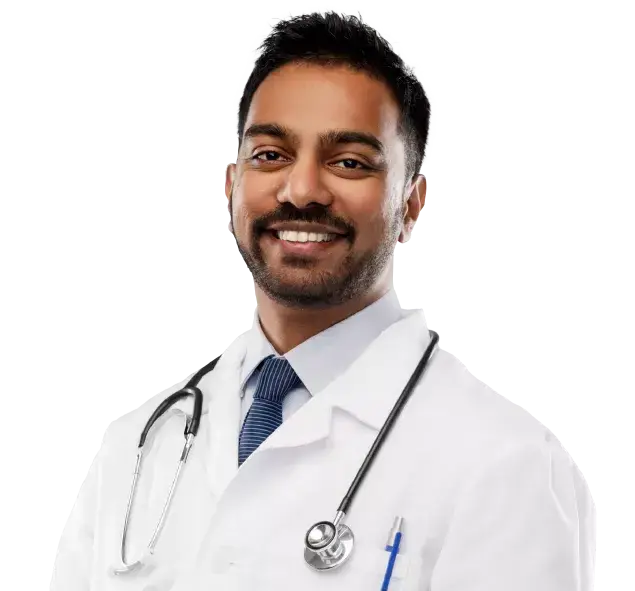
Select City
Visit Pristyn Care for comprehensive and effective testicular torsion treatment. We work with some of the best urologists in the country. Book an appointment with Pristyn Care’s experienced surgeons near you right away.
Visit Pristyn Care for comprehensive and effective testicular torsion treatment. We work with ... Read More




Free Consultation

Free Cab Facility

No-Cost EMI

Support in Insurance Claim

1-day Hospitalization

USFDA-Approved Procedure
Choose Your City
It help us to find the best doctors near you.
Ahmedabad
Bangalore
Bhubaneswar
Chennai
Coimbatore
Delhi
Hyderabad
Indore
Kochi
Kozhikode
Lucknow
Mumbai
Pune
Ranchi
Thiruvananthapuram
Delhi
Gurgaon
Noida
Ahmedabad
Bangalore
Testicular torsion also known as Twisted Testicle or Scrotal Torsion is a rare medical condition in which the spermatic cord that provides blood to the testicle twists and cuts off the blood supply to the testicle. Males of any age can develop this condition; however, it is more frequent in adolescent boys aged 12 to 18. Although testicular torsion is a rare condition, it is a medical emergency that requires prompt care.
Torsion of the testicle is characterized by abrupt and intense pain in the affected testicle, which may be accompanied by swelling, redness, and tenderness. The pain can be severe and can cause nausea, vomiting, fever, and other symptoms.
Testicular torsion is classified into two types: intravaginal and extravaginal. Torsion of the spermatic cord within the tunica vaginalis, the sac around the testicle, causes intravaginal torsion. Torsion of the spermatic cord outside the tunica vaginalis, commonly within the inguinal canal, is known as extravaginal torsion.
Testicular torsion is a serious condition that requires immediate medical attention. If it is left untreated, the loss of blood supply can result in the death of the affected testicle, a condition known as testicular infarction. This can result in testicle loss and long-term consequences such as infertility.
Surgery is the most common testicular torsion treatment. To prevent further twisting, the surgeon untwist the spermatic cord and secured the testicle. If the affected testicle has been damaged beyond repair, it may need removal.

Fill details to get actual cost
It is a medical emergency that requires immediate diagnosis and testicular torsion treatment to avoid the loss of the affected testicle. Testicular torsion symptoms might vary based on the degree and duration of the torsion. The common Testicular torsion symptoms are as follows:
If you encounter any of these Testicular torsion symptoms, get immediate medical attention since it is a medical emergency that requires rapid diagnosis and testicular torsion treatment to prevent the loss of the affected testicle.
If a patient exhibits signs of testicular torsion and symptoms, the doctor usually undertakes a physical exam to examine the status of the testicle and scrotum. They may also perform diagnostic tests to confirm the condition and rule out other conditions. Here are some of the diagnostic tests that may be conducted before testicular torsion Surgery:
It’s important to note that timely testicular torsion treatment is important, as delays in treatment can lead to permanent damage to the testicle. If you experience sudden and severe pain in your testicle, it’s important to seek medical attention immediately.
It is a medical emergency that requires immediate testicular torsion treatment to avoid long-term harm to the testicle. The treatment’s primary goal is to restore blood flow to the damaged testicle. The following are some of the treatment options for testicular torsion:
It is crucial to note that timely treatment is important when it comes to treating testicular torsion, since any delay in treatment might result in lasting testicular damage. If testicular torsion treatment is delayed for an extended period, the afflicted testicle may need to be removed. If you have sudden and severe pain in your testicle, seek medical assistance right once.
Diet & Lifestyle Consultation
Post-Surgery Follow-Up
Free Cab Facility

24*7 Patient Support
The advantages of testicular torsion surgery vary according to the severity of the torsion and the extent of damage to the affected testicle. In general, testicular torsion surgery can provide the following advantages:
It is crucial to seek immediate medical attention if you suspect that you may be experiencing testicular torsion in order to maximize the potential benefits of treatment.
Testicular Torsion occurs when the testicle twists on its spermatic cord, cutting off the testicle’s blood supply. If not treated promptly, this can be a medical emergency, causing damage to the testicle and surrounding tissues. The following are some of the most common causes of testicular torsion:
It is vital to remember that the testicular torsion reason may be unknown in some circumstances. If you have sudden and severe pain in your testicle, seek medical help immediately because testicular torsion requires quick medical attention to prevent long-term damage to the testicle.
The common risks and complications of testicular torsion are as follows:
Following testicular torsion Surgery, it is critical to carefully follow your doctor’s instructions to ensure good healing and avoid problems. Here are some safeguards you should take:
Testicular torsion usually causes sudden and severe pain in the scrotum, swelling of scrotum, redness, tenderness, or hardening of the scrotum. In some cases, it may also cause nausea and vomiting.
Usually, one testicle is sufficient to produce semen and testosterone. A man with one testicle is as fertile as men with two testicles.
If testicular torsion is left untreated, it can lead to permanently damaged or dead testicles that must be removed.
The common risk factors for testicular torsion are underlying bell clapper deformity, undescended testicle, trauma, and prior intermittent torsion. Testicular torsion is the spontaneous twisting of the spermatic cord, which compromises testicular blood flow. It is a rare condition in 1 in 4000 males younger than 25 years, rarely in newborns.
Not always. If one testis undergoes and dies, the anterior pituitary stimulates the remaining healthy testis to secrete more testosterone and form more sperm. In such a case, the man remains fertile. In some rare cases, the sperm count decreases following torsion, increasing the risk of fertility.
Before testicular Surgery, it is extremely important to ask the following questions to your urologists to have a better understanding of the procedure:
The average testicular torsion surgery cost in India typically ranges around Rs. 30,000 to Rs. 70,000.
.svg)
.svg)